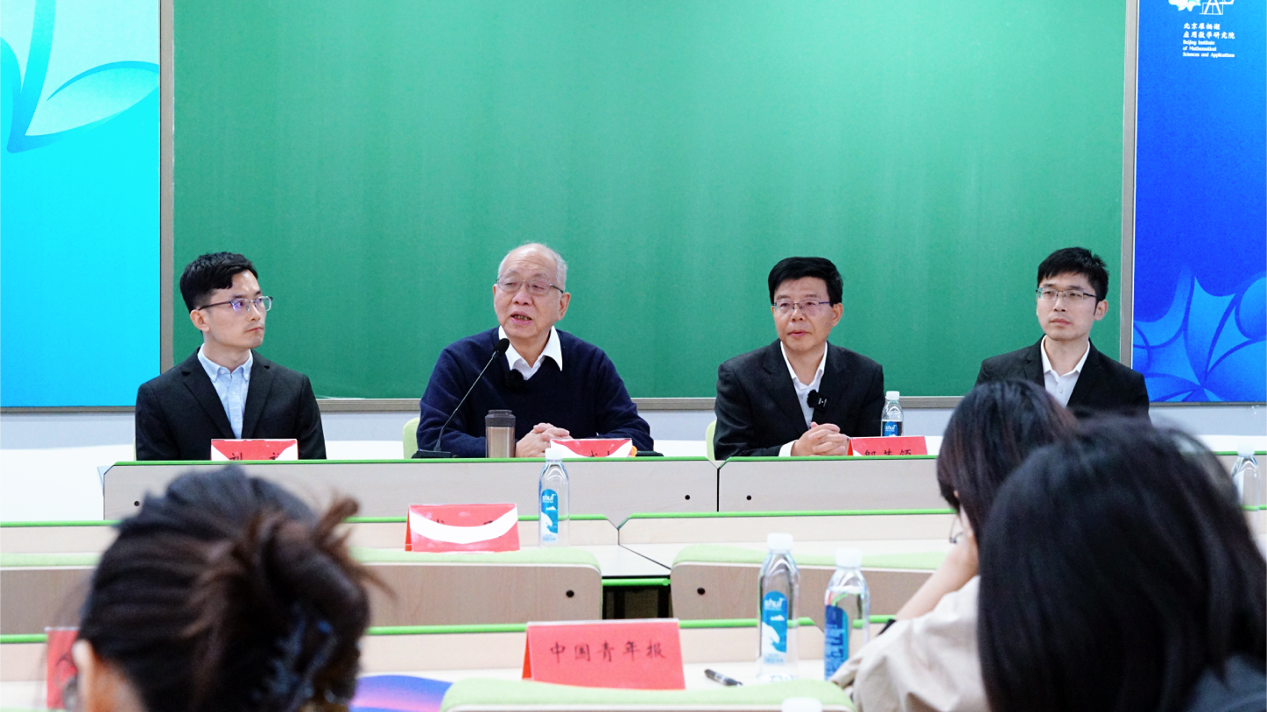
Chinese mathematician Shing-Tung Yau and his collaborators reveal new findings on the metabolomic physics of complex diseases. /BIMSA
Chinese mathematician Shing-Tung Yau and his collaborators reveal new findings on the metabolomic physics of complex diseases. /BIMSA
A Chinese statistical and algebraic topology team is attempting to provide a new idea for analyzing the causes of complex diseases, guiding the treatment and related drug design.
A relevant study was published in a U.S. journal Proceedings of the National Academy of Sciences (PNAS) recently. Wu Rongling, professor at Beijing Institute of Mathematical Sciences and Applications (BIMSA), introduced the findings at a news conference.
The causes of complex diseases have long puzzled mankind. Researchers know there are close connections between the occurrence of diseases and changes in metabolism, but scientific methods available now can only describe a single key metabolite without considering the fact that the intrinsic features of complex diseases are multifactorial, dynamic, heterogeneous and interdependent.

A screenshot of the study published in the journal PNAS.
A screenshot of the study published in the journal PNAS.
Wu said the research team has combined ecosystem theory and evolutionary game theory to create a statistical physical model of complex diseases for the first time, which enables it to analyze and infer the causal relationships between internal variables in the system, integrate all metabolites into a two-way, signed and weighted interaction network, and trace how information flow from one metabolite to another causes changes in health status.
The research team also applied the homology theory in algebraic topology to network analysis, using the GLMY homology theory recently developed by renowned mathematician Shing-Tung Yau and his collaborators to quantitatively analyze the network.
"By applying this model to real data, we were able to identify several central metabolites and their interaction networks, which play a key role in the formation of inflammatory bowel disease," Wu said.
Yau, who is also dean of Qiuzhen College, Tsinghua University, stressed the importance of fundamental sciences such as physics and mathematics to society, as well as the importance of applying theories of fundamental sciences in reality.
"Applied mathematics plays a key role in research, education and industry and requires interaction and collaboration between multiple fields," Yau said.